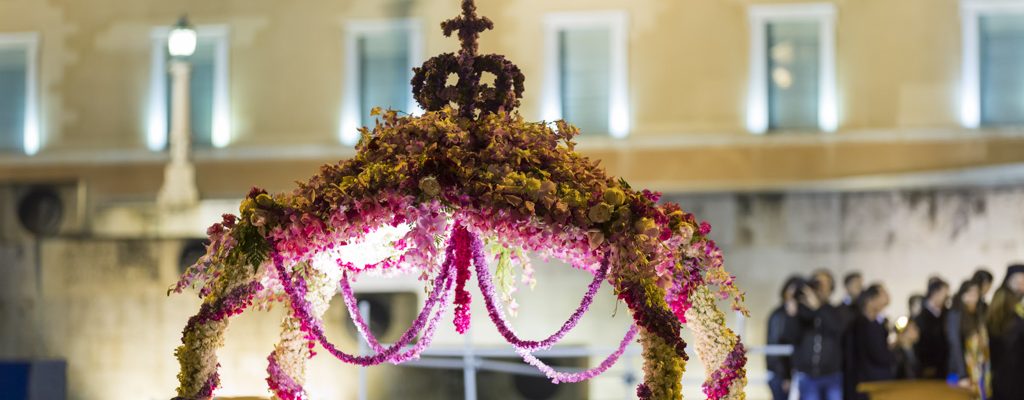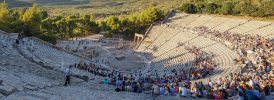In Greece, you really sense the mystery and the miracle of Easter. Unlike in most western Easter celebrations, Easter is not limited to a day or two, but encompasses a whole season. Beginning after Carnival, Lent ushers in a period of restraint. Then, when Holy Week begins in preparation for Easter Sunday, the somber mood, at its height on Maundy Thursday, reflects both the pity of the Greek people and their respect for tradition. Greek Orthodox Easter is a more significant and joyous celebration even than Christmas. Coming to Athens for the Easter Weekend is a wonderful experience – culturally and spiritually.
Good Friday in Athens
Good Friday in Greece is a moving event. All day, the bells toll mournfully, as people fill the churches to pay respect to the Epitaphios – the funeral bier of Christ. These are decorated elaborately with flowers. In the evening, the bier is carried around the streets as the faithful, holding candles, follow behind.
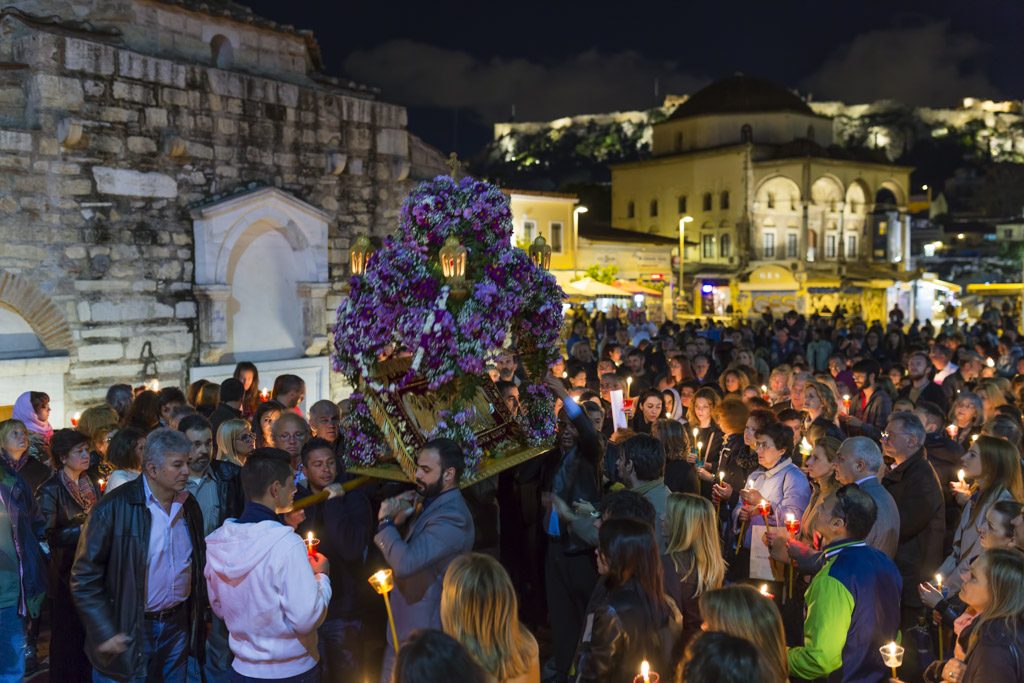
The Church of Agios Georgios Kyritsis is a landmark church in the heart of downtown Athens. The church is originally from the 11th century, built by the family Kyritsis. The Church was very badly damaged in the Greek War of Independence of 1821, but was such a significant place in the hearts of Athenians that it continued to be used. The architect who built the Church of Agia Irini nearby was commissioned to reconstruct the beloved Agios Giorgos Karytsis in the 1840s. In subsequent decades, a magnificent screen was added, along with wall paintings by the most prominent iconographers of the era.
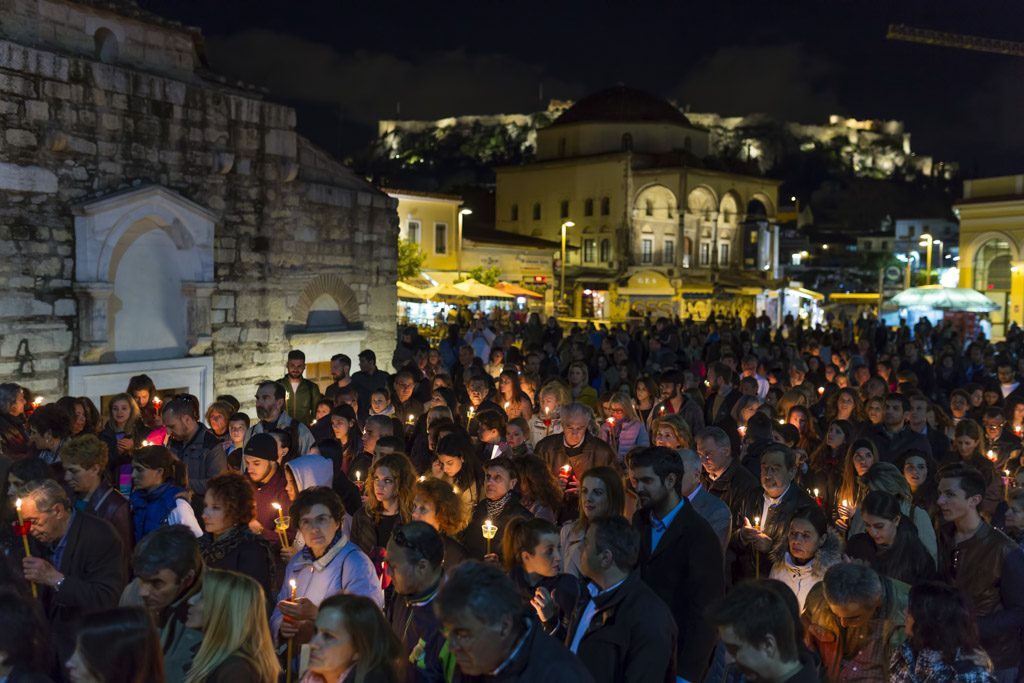
Karitsi square is now the center of a very interesting neighborhood, with a new generation of hip bars and restaurants and an exciting crowd. But on Good Friday, the streets give themselves over to the procession of the Epitaph. The Epitaph of the Church of Agios Georgios Karytsi passes along some of the most well-known streets of central Athens, including Kolokotroni, Praxitelous, Ermou, and Syntagma. It’s fascinating to see some of the busiest streets of this modern urban center transformed into a place of reflection and worship.
Although the procession of the Epitaph is a somber event, already the excitement and anticipation of the resurrection is in the air. Athenians spend the Saturday before the resurrection shopping for last minute preparations and buying gifts for their Godchildren and Godparents. This is a wonderful time to feel the hustle and bustle of the marketplace downtown, and meet with friends.
The Resurrection
As midnight approaches, people make their way to church for the most glorious celebration of the Greek Orthodox calendar. The Church of Agios Nikolaos Ragavas is one of the most historic and beautiful places to celebrate the resurrection. Built in the Byzantine era, this lovely 11th century church has many lovely middle Byzantine features and marble columns. The exterior walls have elements taken from earlier structures. In the 18th century the church was restored, and again in the later 20th century.
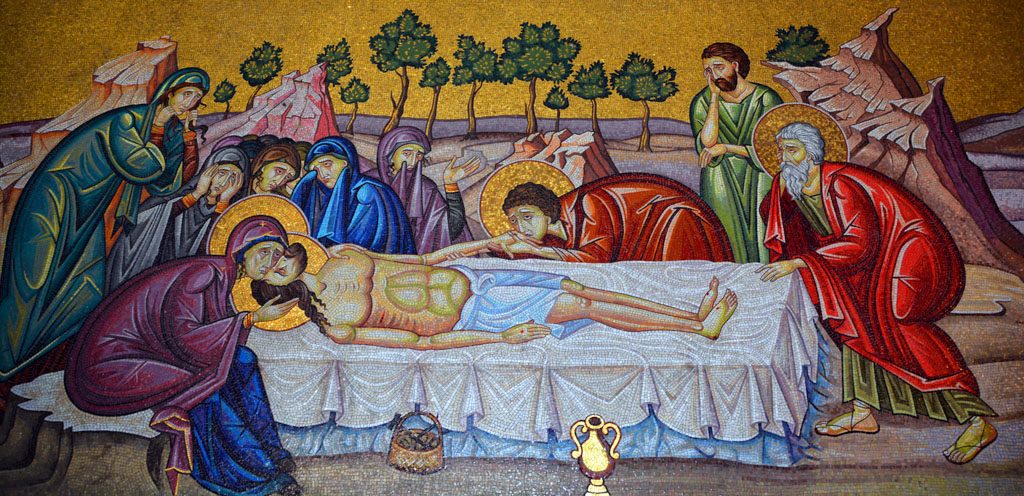
One of the most wonderful things about the church of Agios Nikolaos Ragavas is that it was the first to have a bell after the Greek War of Independence. These bells were the first to ring on the liberation of Athens from the Germans during World War II, in October of 1944. Now, this lovely church in the heart of Plaka is a favorite. It hosts many weddings, particularly during the summer months. It is a wonderful place to experience the resurrection.
If you have not experienced the Greek Orthodox Resurrection, you are in for a wonderful and deeply moving experience. The very faithful go early and enter the church. But by the time most people arrive, there is no longer any room inside, and the squares and surrounding streets of most churches are filled. Bring a tapered candle, or buy one from a vendor on site. At midnight, the bells will peal joyously, the streets will fill with the joyous hymn “Christos Anesti”, and friends and neighbors embrace with joy, as the light of the resurrection spreads through the crowd from candle, to candle. Then, those who have brought eggs dyed red will crack them against each other, to see who has the strongest. After church, everyone goes home to eat “Magiritsa”- this rich and lemony soup is made with the innards of the lamb which will be roasted the next day as the feature of the Easter meal.
Plaka, one of Athens’ most famous and atmospheric neighborhoods, nestled at the foot of the Acropolis, is the perfect pace to experience a true Greek Orthodox celebration of the Resurrection.
Easter Sunday in Athens
Easter Sunday in Greece is truly a wonderful celebration. Many traditions will be observed by families and friends, whether in the countryside, the islands, or in the very heart of the capital.
Of course, this being Greece, food will be central to the celebrations. Besides the red eggs and the magiritsa, there is tsoureki. This sweet bread, rich with eggs and fresh butter and scented with exotic hints of mahlepi, is shaped into lovely flat braid and wreaths. It makes a lovely Easter breakfast.
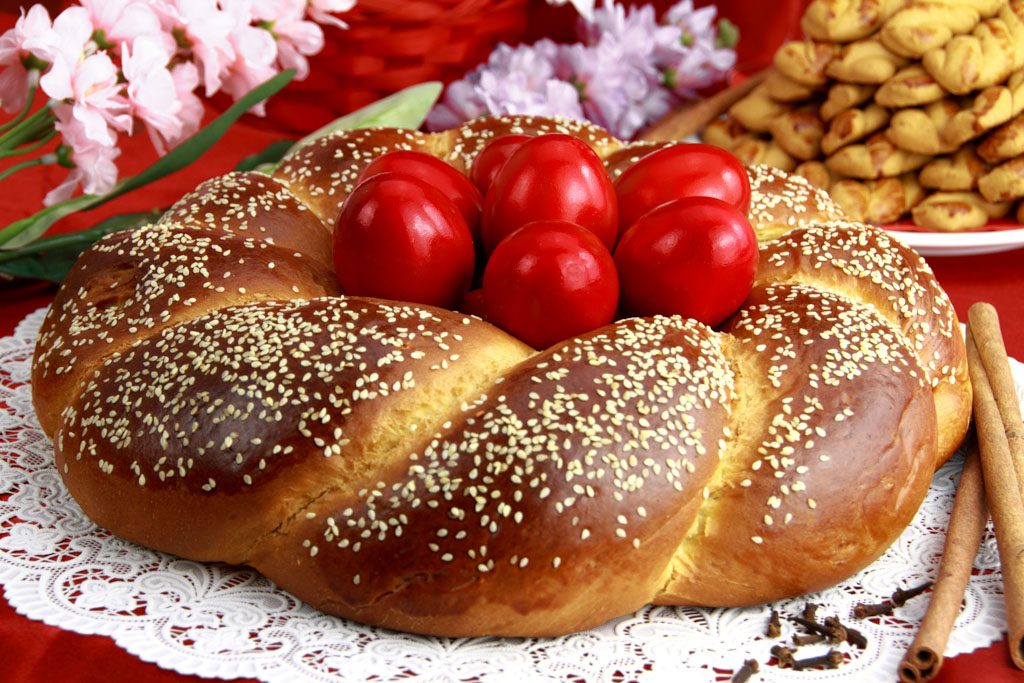
Easter in the center of Athens offers a wonderful combination of experiences. One of the most wonderful things about Athens is how this dense and exciting urban destination has a core of absolute serenity. Philopappou Hill – also called the Hill of the Muses – is in the historic center of Athens. This is a wonderful green place to come for a stroll on Easter morning. Crested by trees and the monument for which the hill is named – Gaius Julius Antiochus Epiphanes Philopappos (65-116 AD) – from here the whole of Athens unfolds before you, all the way to the Saronic Gulf. And of course, from here you have a view of the Parthenon and of the Ancient Agora, including the Stoa of Attalos and the lovely Temple of Hephaestus.
Easter Luncheon
Recall that most devout Greek Orthodox people have been fasting for forty days – this means abstaining not only from meat but also from eggs and dairy, and generally eating modestly. The lamb of Easter, slow roasted for hours until beautifully browned and crisped, is both one of the most delicious and most festive meals of the year. There will be many specialties on the Easter table, such as pies with delicate home-made phyllo, but the lamb is the star.
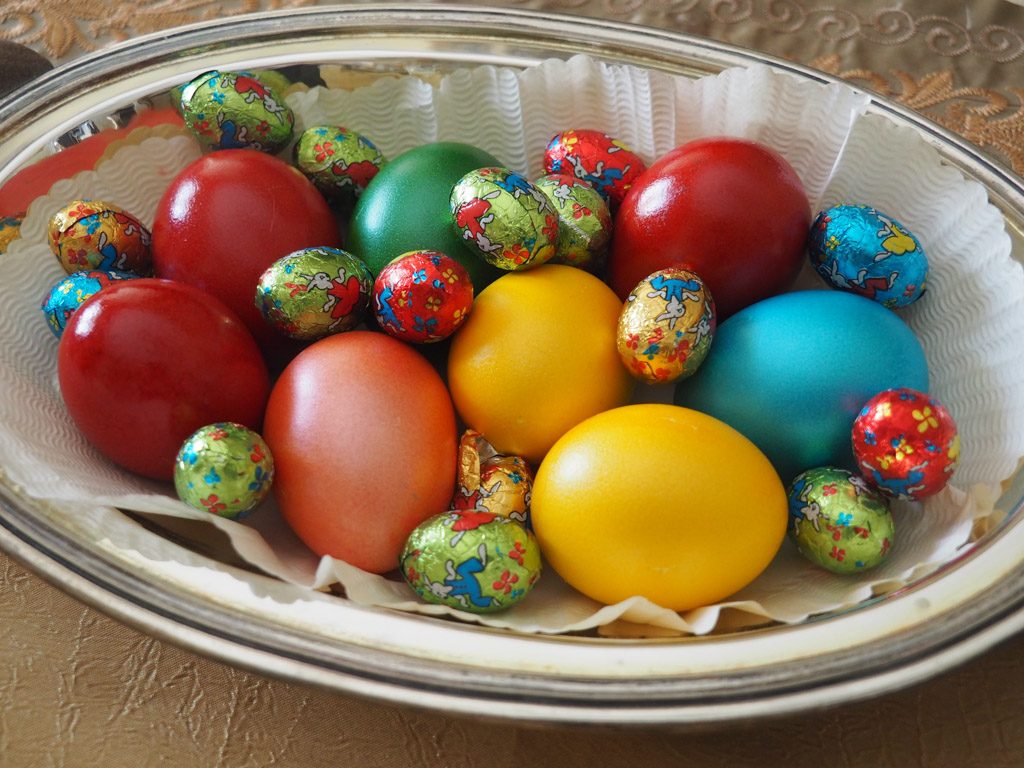
Many Greeks have headed for the countryside and nearby islands to celebrate Easter in their ancestral villages with their families. Happily, you can enjoy a traditional Easter feast in style, right in the center of the capital. Many of the finer hotels and restaurants organize splendid Easter luncheons, in beautiful surroundings and many with spectacular views. An Athenian Greek Orthodox Easter is a wonderful experience, combining tradition and sophistication.
Have you ever celebrated Easter in Greece?

